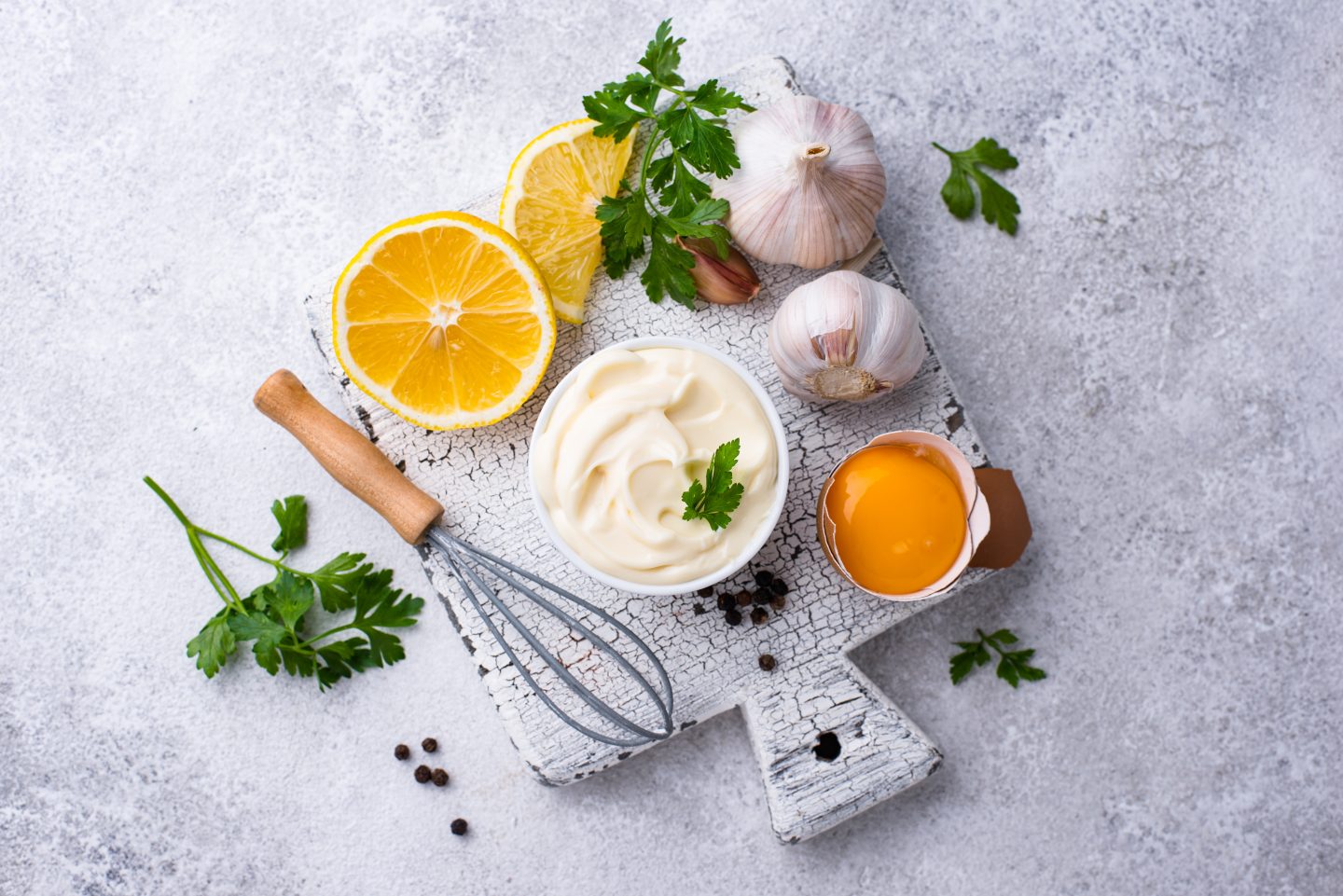
So I wanted to share some basic recipes on my blog, as sometimes when you buy these from the shops, they can contain many additives or extra sugar. These are simple recipes that taste great and are relatively easy to make. I thought I’d start with a simple Mayonaise.
You can make the mayonnaise in a food processor in just the same way as with a whisk.
If you find that the mixture is too stiff to work with, you can add a few drops of warm water to loosen it up.
Some people have suggested you try using Olive Oil in place of the standard oils mentioned above. Still, I find this then has a very pungent flavour.
Directions
Details
8
20 Minutes
330
Ingredients
- Ingredients:
2 Egg Yolks.
Pinch of Salt.
1/2 Tsp Dijon Mustard.
300ml Oil. Either Sunflower, Corn or a Groundnut Oil.
A squeeze of Lemon Juice.
Directions
- Mayonnaise
- Place a tea towel folded on a work surface. This will help stop the bowl you’re placing on it from moving around whilst whisking.
- Put your egg yolks in a mixing bowl and season them with a pinch of salt. Then add the Dijon mustard and briefly whisk it all together.
- Then you can start adding the oil a few drops at a time. You will need to keep whisking consistently until the egg yolks completely absorb the oil. Once complete, you can add a few more drops of oil and repeat. When you have used about a third of the oil, you can then start adding in a little more of the oil at a time until you get to the point that it is a steady stream.
- When you have incorporated all of the oil, you add lemon juice.
- Store the homemade mayonnaise in the fridge covered in Cling Film/Cling Wrap.
- Place a 9″ plate or the base of a springform cake tin on top of your rolled dough and trace around it with a knife to get a perfect circle. Keep all of the scraps to use later.
Nutrition Facts
8 servings per container
Serving Size5g
Calories330
- Amount Per Serving% Daily Value *
- Total Fat
36.7g
57%
- Saturated Fat 3.9g 20%
- Cholesterol 52mg 18%
- Sodium 30mg 2%
- Amount Per Serving% Daily Value *
- Potassium 12mg 1%
- Total Carbohydrate
0.7g
1%
- Sugars 0.7g
- Protein 0.7g 2%
- Vitamin D 23%
* The % Daily Value tells you how much a nutrient in a serving of food contributes to a daily diet. 2,000 calories a day is used for general nutrition advice.